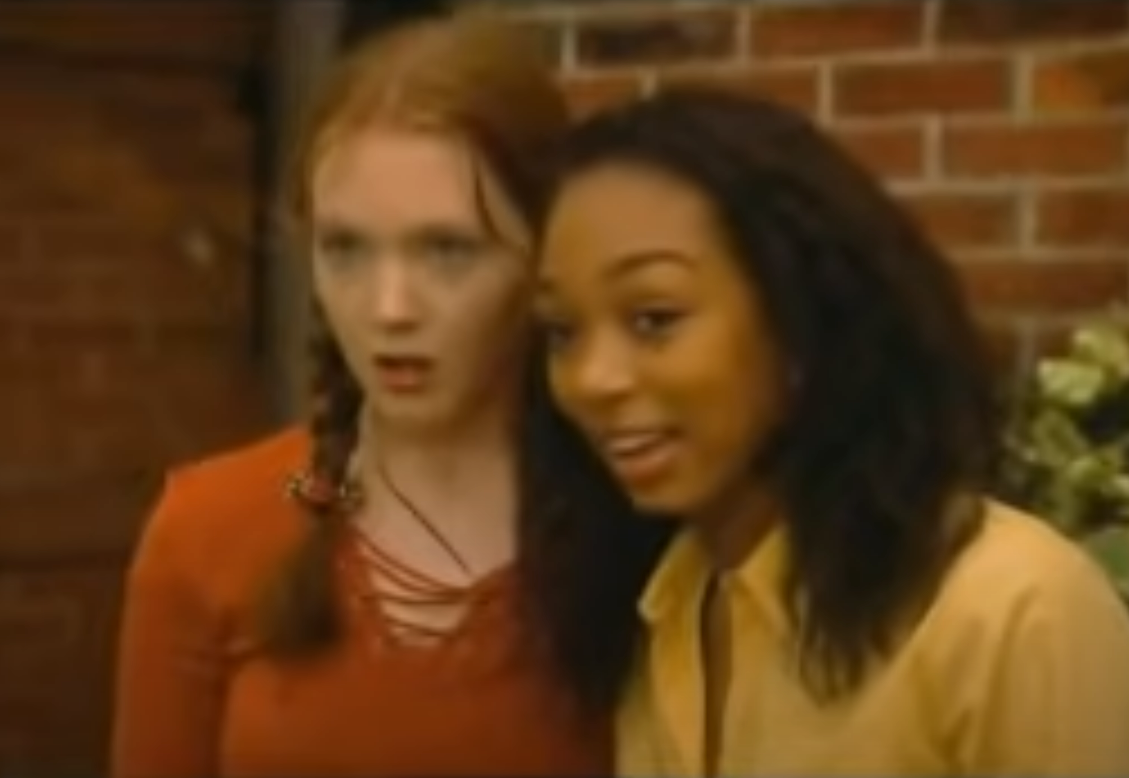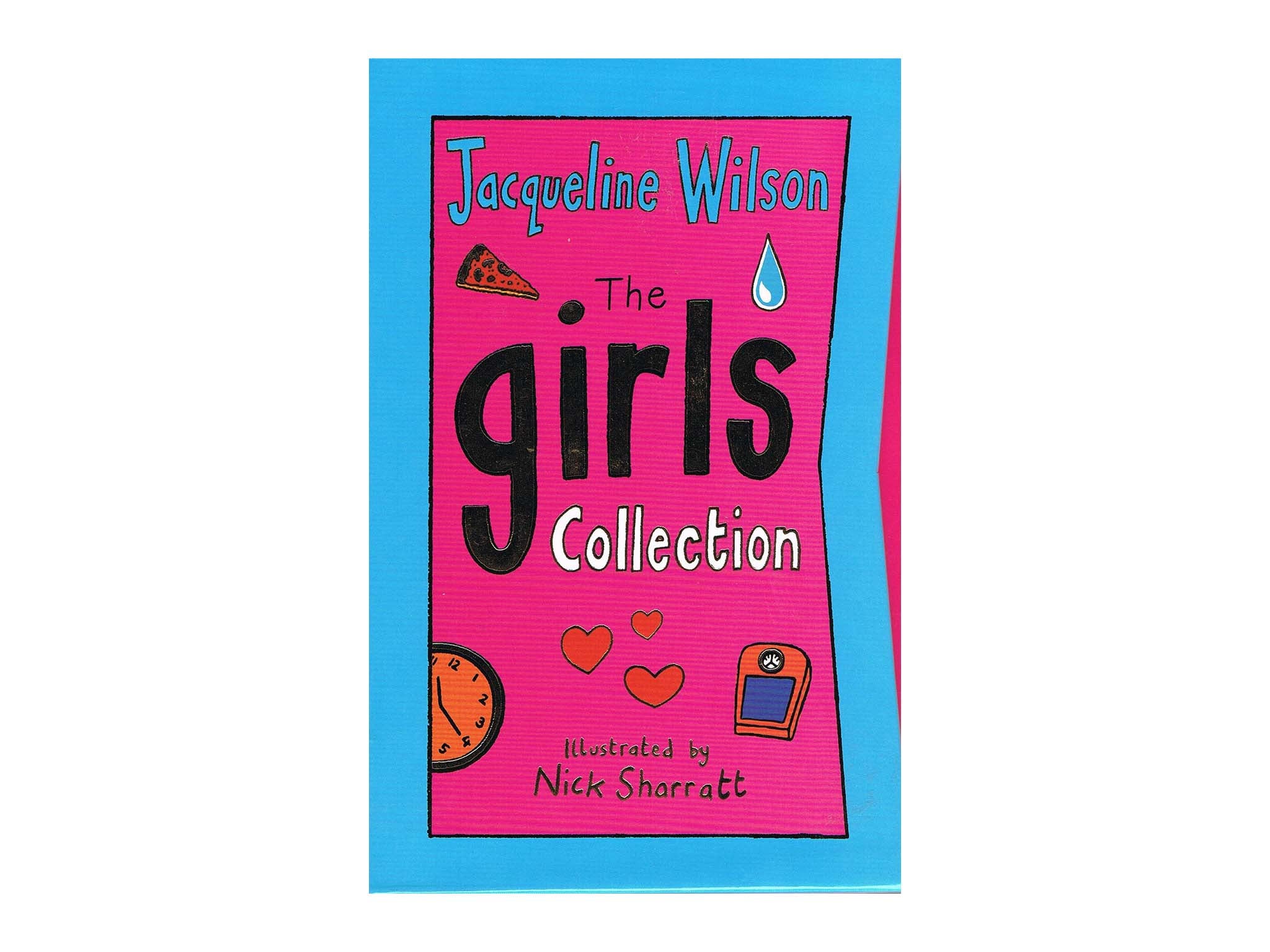Jacqueline Wilson taught me how to cope with being a teenage girl – I’m so happy she’s back
With the news that the adored children’s author is publishing her first adult novel since the 1970s, Helen Coffey wallows in the nostalgia of growing up alongside her fearless and flawed female characters


Your support helps us to tell the story
From reproductive rights to climate change to Big Tech, The Independent is on the ground when the story is developing. Whether it's investigating the financials of Elon Musk's pro-Trump PAC or producing our latest documentary, 'The A Word', which shines a light on the American women fighting for reproductive rights, we know how important it is to parse out the facts from the messaging.
At such a critical moment in US history, we need reporters on the ground. Your donation allows us to keep sending journalists to speak to both sides of the story.
The Independent is trusted by Americans across the entire political spectrum. And unlike many other quality news outlets, we choose not to lock Americans out of our reporting and analysis with paywalls. We believe quality journalism should be available to everyone, paid for by those who can afford it.
Your support makes all the difference.OMG!!! Have you seen this???” I received this message from multiple contacts within the space of a few hours on Thursday afternoon. All of them millennial women. All of them linking to a story announcing that beloved children’s author Jacqueline Wilson was to publish her first adult novel in close to 50 years – and it was going to revisit the main characters from the “Girls” Young Adult series.
“I KNOW!!! IT’S SO EXCITING!!!!” came my response (there were, if anything, even more exclamation marks in the original correspondence).
Why the unbridled hysteria? Well, if you are a woman in your thirties in the UK, you didn’t just grow up with Jacqueline Wilson books – they were the literary backdrop to your entire childhood, tween, and early teen years.
The universally adored stories, brought to zinging-off-the-page life by accompanying illustrations from Nick Sharratt, were so compelling not just because Wilson is such a masterful storyteller, but because the characters she depicted had real, difficult, and complex upbringings. Her leads were often feisty, courageous and sometimes outright bratty kids, but they struggled with non-straightforward family dynamics.
Wilson simply didn’t write about nuclear families with 2.4 perfect children: Tracy Beaker lived in a care home (aka the “dumping ground”); Andy had to deal with her parents’ divorce and being split between two families in The Suitcase Kid; Charlie was the daughter of a single mum who struggled to make ends meet in The Lottie Project; Mandy suffered through being bullied in Bad Girls; Dolphin and Star navigated having a mother with bipolar disorder and a drinking problem in The Illustrated Mum.
But perhaps the books that had the biggest impact on me and my cohort were written for a slightly older demographic: the “Girls” series. These four YA novels – Girls in Love, Girls Under Pressure, Girls Out Late, and Girls in Tears – followed protagonist Ellie, a budding artist, and her two best friends, Nadine (“willowy” and “gothic”) and Magda (“tall” and “glamorous”) as they navigated secondary school, first boyfriends, and body image issues.

The reason they chimed so deeply with me – and perhaps with so many girls my age – was that Ellie is convinced she is unattractive and boring “and that no boy will ever be interested in her”. I cannot express how much I shared this sentiment between the ages of 13 and 16. Like Ellie, I, too, had pale, freckled skin; giant, frizzy hair (well, curly, but same difference in the late Nineties); wore glasses; and went straight from the puppy fat stage to “apple”-shaped, according to the copies of Bliss, Sugar and Just 17 magazine I bought religiously. This (to my mind) unenviable body type consisted of having small hips, big boobs and a round tummy.
Oh, and I even went a step further than Ellie in the unattractiveness stakes, compounding it all by having a mouth full of metal thanks to years of braces. I’m thankful for my fairly straight teeth now, but train-tracks were never exactly known for their sex appeal.
There is little that’s harder than being a teenage girl. I identified so strongly with Ellie’s turbulent mix of emotions – her love of her best friends (4eva!), but also her conflicting jealousy. I felt surrounded by mates who were prettier, more popular, taller, thinner. And this last attribute dominated my thoughts, as they did Ellie’s.
There is little that’s harder than being a teenage girl. I identified so strongly with Ellie’s turbulent mix of emotions
Beauty standards for women have shape-shifted since then – though they’ve arguably become, if anything, harder to live up to – but in the early Noughties, it was all about skinny. Not slim, even: “heroin chic” was a genuine term used in the press. To be considered desirable, you were supposed to look like an emaciated drug addict. The concept of dieting to be a “size zero” entered the national consciousness – with Kiera Knightley, Kate Moss and Victoria Beckham as our poster girls. Moss famously popularised the quote “nothing tastes as good as being skinny feels” and everyone just accepted it. Is it any wonder I was attempting to follow Weight Watchers at age 15 and used to write in my diary that I was fat and disgusting and that no one would ever fancy me?
The book that had the biggest impact on me was the second in the “Girls” series, Girls Under Pressure. It explores each of the three friends’ struggles with their looks, but the focus is on Ellie grappling with an eating disorder. Wilson really did her research – Ellie’s story feels desperately real, and the feelings that lead her to starve herself were exactly what my peers and I were experiencing: self-consciousness, low self-esteem, with no control over our hormones, our bodies or our lives. The book handles it incredibly sensitively, yet it doesn’t shy away from the dark realities either. Ellie sees a former friend who has developed such severe anorexia and bulimia that she winds up in hospital.

I honestly think reading and rereading that book – which I did furiously and often in those horrendous puberty years – helped steer me away from having an eating disorder myself. It might sound melodramatic, but seeing my situation and emotions mirrored so closely by those characters made me feel seen – like I wasn’t so alone. Ellie, who I very much saw as my literary representation and counterpart, manages to reach a degree of self-acceptance and even bags a boyfriend. Though I sadly can’t say I followed in her romantic footsteps while at school, it made me at least believe such a miraculous occurrence might be possible.
I can’t quite imagine what the adult version of the books will be like, either in tone or in story, but I do know I can’t wait to spend more time with Ellie, Nadine and Magda after our 22-year hiatus. Here’s to you, my teenage triumvirate: I couldn’t have made it through adolescence without you.
Think Again will be published by Transworld in hardback, audio and ebook this September.
For anyone struggling with the issues raised in this article, eating disorder charity Beat’s helpline is available 365 days a year on 0808 801 0677. NCFED offers information, resources and counselling for those suffering from eating disorders, as well as their support networks. Visit eating-disorders.org.uk or call 0845 838 2040
Join our commenting forum
Join thought-provoking conversations, follow other Independent readers and see their replies
Comments